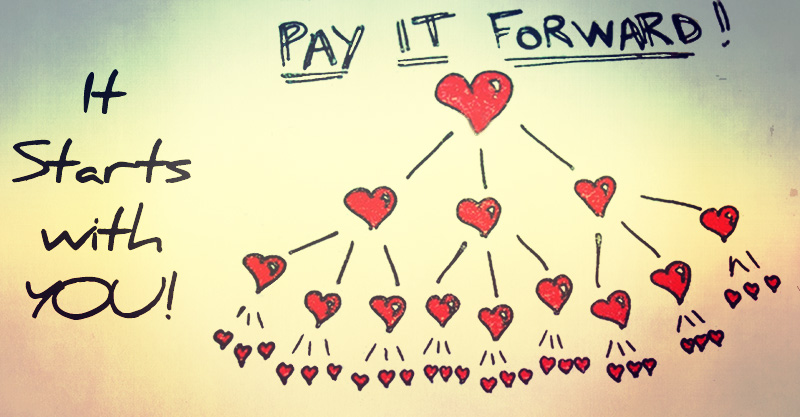
Kindness in the workplace: small gestures = great impact
How YOU can generate kindness in the workplace
(and brighten someone’s day in five minutes or less!)
One of my ‘Friday jobs’ (as part of life working in internal communications) is to wander around our beautiful big central London building to visit all the different departments, update their staff notices, promote whatever’s going on (official business), and share some gossip (unofficial business).
When I returned to my desk after one such round recently, my boss told me that someone in another area, Ashley, had sent him a really nice email about me.
Ashley specifically emailed my boss to share that I represent my team in a positive way both in person and via phone and email. She made the comment that she thinks it’s important to highlight the good going on around us because it’s too easy to dwell on the negatives.
I share Ashley’s sentiment, and while I make a point to always genuinely thank or compliment friends and colleagues in my own way of generating kindness in the workplace, what struck me about her gesture was that she put herself out there and sent feedback to my manager.
That type of action is thoughtful and really matters. It didn’t just brighten my day, but my week which in all honesty had been long, tiring and reasonably stressful.
It got me thinking, what other ways could we each bring a little kindness into work?
4 ways to implement kindness in the workplace today
Thank you cards
I have a little stash of thank you cards at work and I hand write a note on one every now and then when I notice someone has gone out of their way for others.
Certainly, I’m no-one special at work – not a senior manager or anything – but that doesn’t matter to the recipient who is always grateful that someone noticed and cared about their efforts.
Pay attention to what’s going on around you
We are always so busy and stuck in our own deadlines that it’s easy to miss that others are in the same boat.
Being a little mindful and supportive can go a long way.
A hard-working friend of mine, Isabelle, was run down with a cold recently and she was really touched that a nurturing colleague, Emma, picked up some effervescent vitamin C for her while she was out on her lunch break.
They aren’t even in the same team, but Emma clocked that this could make a difference to Isabelle (who was also about to take a long flight to China to visit her sister), and she was right – this was a nice thing to do, at just the right time.
Similarly, two colleagues I work with this week noticed I seemed to be having a tough afternoon and promptly delivered chocolate to my desk. While I very much enjoyed eating the treats, their thoughtfulness cheered me up (thanks Caroline and Izzy!).
Start a gratitude initiative
We have staff noticeboards in all departments at work, and one of our jobs as internal communicators is to use these to build morale and engagement.
We’ve pinned pretty little cloth pouches (jewellery bags I found on eBay) to each board and filled these with coloured cards and pens; staff are encouraged to use these to pin notes on the boards. The messages can be about anything, including events, goods for sale, or praise for co-workers.
More specifically, I’ve pinned up A4 pages that go on the boards blank except for a heading: ‘Thank a colleague who you don’t usually work with who has made a positive difference to you’.
In some departments we’ve ended up with pages of notes from people who have shared messages of thanks (either including their names or anonymously).
When staff see someone’s thanked them in that public space it gives them a nice buzz, and generates wider feelings of happiness throughout the office.
This same concept can be applied using postcards, notes in your internal magazine or newsletters, and on intranet notices, digital thank you cards or conversation threads.
A few words go a long way
Finally, taking a lesson from Ashley’s kind gesture, it only takes a moment to email someone a genuine message of praise or gratitude.
Or, be proactive and let someone’s manager know an awesome job is being done – you might be surprised to know how little this happens!
In my experience people often assume things are a ‘given’; that gratitude or compliments are dished out freely (by someone else!). Often they are not.
Yet, countless human resources survey results have revealed that people are much happier and far more productive when they feel appreciated by managers as well as peers.
Imagine the difference that we would all experience at work if each of us took responsibility for implementing just one small kind action for someone else every week.
I’d love to hear about your tips, ideas and experiences around kindness in the workplace… Is it really possible to make an office happier, do you think?


